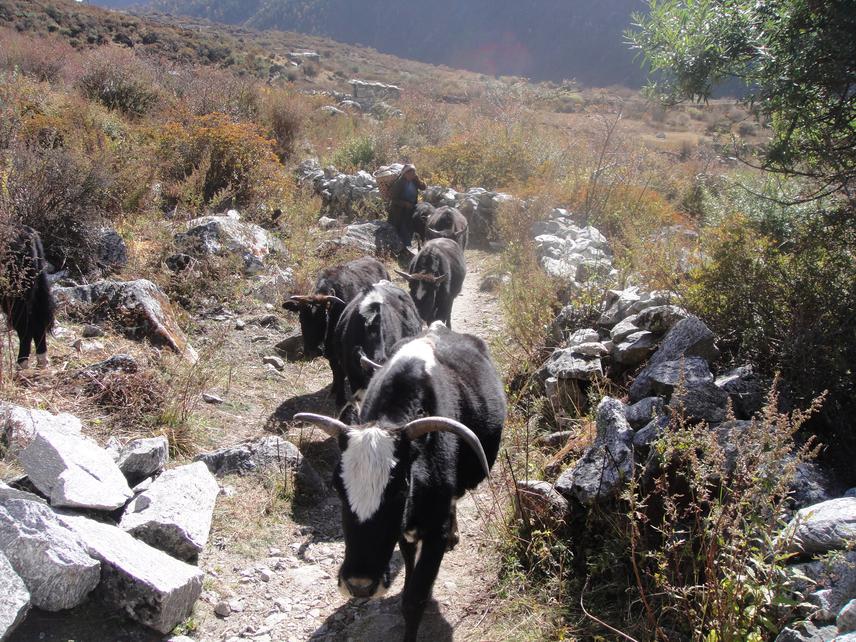Kamal Thapa
Other projects
11 Jan 2013
Conflict, Conservation and Resource Use in Protected Areas: Case Study from Annapurna Conservation Area and Parsa Wildlife Reserve, Nepal
10 Jul 2020
Local People, Nature-Based Tourism and Protected Areas in Nepal: Implication for Conservation
This project aims to assess the benefit, identify key ecosystem services and valuation of ecosystem services in Langtang National Park, Nepal.

Livestock herding is a traditional practices in Langtang National Park.
Protected Areas, such as National Park are the hotspot of biodiversity conservation. Besides the role of biodiversity conservation, these sites provide various ecosystem services that are of high importance to human welfare. Langtang National Park too provides various ecosystem services that are central to human development that includes food, timber, fuel-wood, timber, pasture, water sources, carbon sequestration, recreational or aesthetic benefits etc comprising all of the four major components of ecosystem services. However, they are not recognized technically and economically at the local/park level and national level and need to be documented.
Decision makers need to know how the changes in a site, either development or restoration would affect the delivery of services and distribution of benefits among stakeholders (Peh et al., 2013). Due to the absence of ecosystem service approach into park planning and management, park resources are often undervalued or treated as a free to use ‘Nature Gift’ threatening the long term survival of park. There has never been a single study carried out on economic aspects of ecosystem services nor benefits derived from park assessed in LNP. To some extent, the study output can also aid in exploring sustainable financing options for LNP and local community development. This can help prevent LNP from falling prey into Paper Park. If the payment of ecosystem services concept is realized; Langtang National Park could generate sufficient financial resources for its management and surplus money can be invested in buffer zone development activities.
This study is first of its kind in Nepal’s protected areas. Various methodologies and tools will be used to conduct this study such as PA-BAT, TESSA toolkit, economic valuation methodology, questionnaire survey including stakeholder discussion and expert consultation.
The specific objectives of this study are:
- To identify and assess various ecosystem services (provisioning, regulating, supporting, and cultural services) offered by LNP.
- To carry out total economic valuation of LNP and its associated ecosystem services, including ecotourism and cultural values.
- To assess protected area benefit provided by LNP to local people.
- To provide background information for the future design of PES.